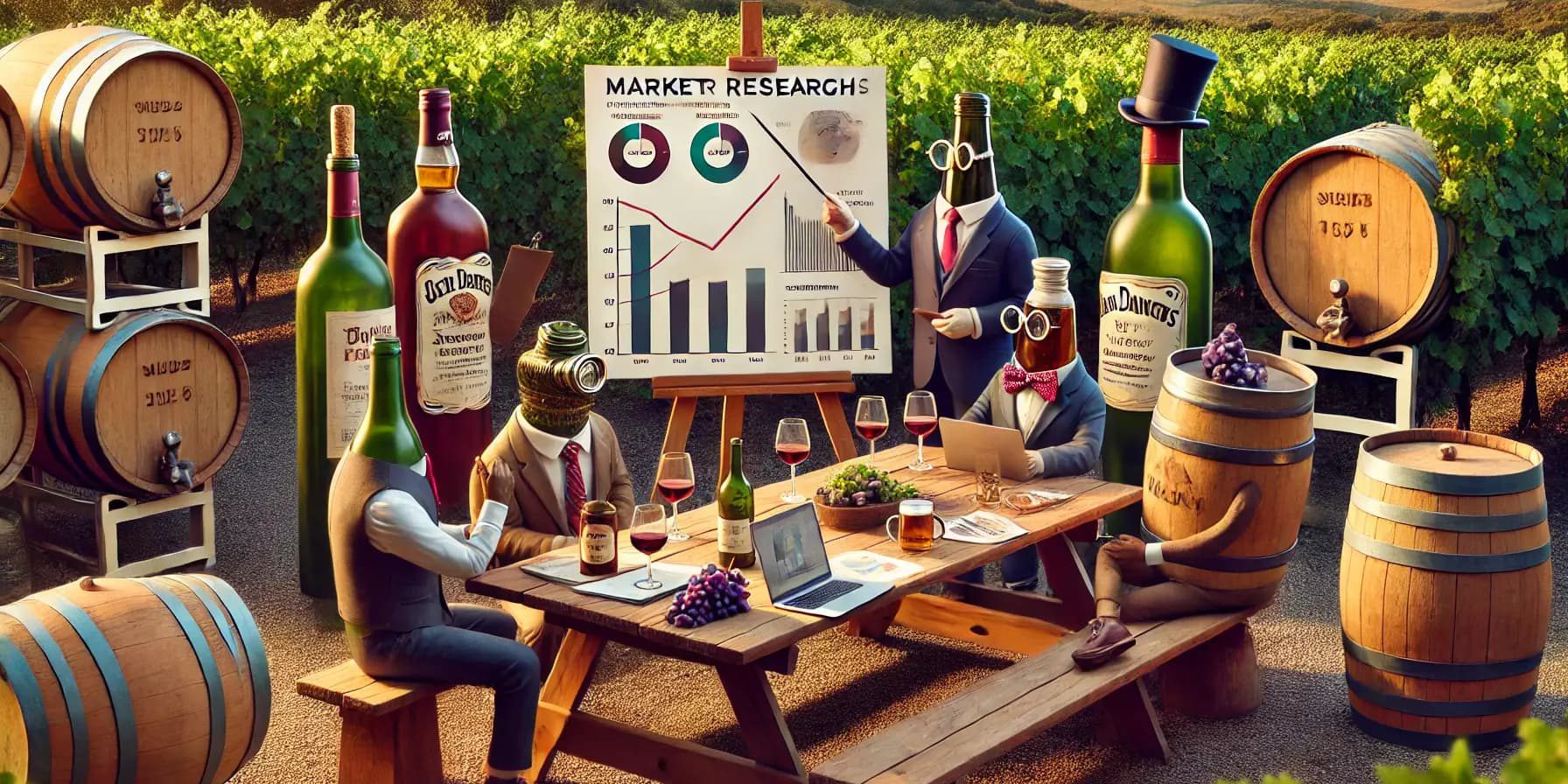Building a B2B sales pipeline for wineries, breweries, and distilleries is only the beginning. To maximise its effectiveness, businesses must employ supporting strategies that enhance:
- lead generation
- customer engagement
- overall sales performance.
This article will explore various strategies, including market research and email marketing, that can help companies optimise their B2B sales pipeline and ensure long-term success.
1. Market Research: Understanding the Landscape
A deep understanding of the market is vital for any business looking to succeed in the B2B space. By leveraging data, companies can identify trends, target demographics, and refine their marketing strategies. Here are key steps in conducting effective market research:
- Buying Data: One of the most effective ways to gain insight into market trends is by purchasing industry reports. Companies like NielsenIQ provide comprehensive data on consumer behaviours, pricing trends, and other market dynamics that can inform sales strategies.
- Using Existing Data: Often, wineries, breweries, and distilleries already possess valuable data through CRM systems and past transactions. Analysing this information can help identify trends, such as peak purchasing times or product preferences, enabling targeted outreach.
For example, Vinsight offers a reporting feature that can track customer and product trends depending on what you wish to track. - Exploring Other Market Research Sources: Platforms like Wine Business Solutions offer industry-specific research papers that can provide insights into the wine and alcohol market. Using such resources can help businesses stay informed about competitive dynamics and market shifts. Read this article to learn more about CRMs Building a B2B Sales Pipeline for Wineries, Breweries and Distilleries
- Creating Lead Lists/Databases: A well-structured lead database is crucial for effective pipeline management. By segmenting leads based on business type, location, and past interactions, companies can tailor their sales approaches and increase the chances of converting leads into customers.
2. Email Marketing: Engaging with Potential Clients
Email marketing remains a powerful tool for nurturing leads and guiding them through the sales pipeline. By developing targeted campaigns and using CRM tools to manage these efforts, wineries, breweries, and distilleries can build strong client relationships and increase their sales opportunities. Key components of an effective email marketing strategy include:
- Outbound Email Marketing: Using your CRM tool’s lead database, create segmented email lists based on factors such as the business type (e.g., restaurants, distributors, event planners), location, and buying history. Tailor email templates for different segments, focusing on themes like seasonal offerings, special deals, and product updates.
- Progress Tracking: Measure the effectiveness of your campaigns through CRM tools. Tracking open rates, click-through rates, and response rates can help fine-tune your email marketing approach, ensuring that you engage with leads at the right time and with the right message.
3. Understanding Your Target Market
To create effective marketing and sales strategies, wineries, breweries, and distilleries must thoroughly understand their target market. This involves analysing various aspects such as demographics, product preferences, and buying behaviours:
- Demographics: Knowing the characteristics of the businesses you are targeting—such as their size, geographic location, and customer base—allows you to tailor your approach and offerings to meet their specific needs.
- Customer Trends: Understanding which products are most popular, how seasonality affects sales, and what pricing and packaging options appeal to your target audience helps refine your sales and marketing efforts. For instance, offering seasonal promotions or special packaging for the holiday season can increase engagement.
- Buying Behaviours: Analysing how your target market prefers to make purchases (e.g., through online platforms, direct sales, or distributors) can help you tailor your distribution channels and marketing strategies to match their buying habits.
Conclusion
A successful B2B sales pipeline is supported by a comprehensive strategy encompassing market research and effective email marketing. By implementing these strategies, wineries, breweries, and distilleries can gain deeper insights into their market, engage leads more effectively, and increase sales performance.
In the next article, we’ll explore SMART goals and market opportunities for wineries, breweries, and distilleries, diving into emerging trends and growth areas to maximise business potential.






